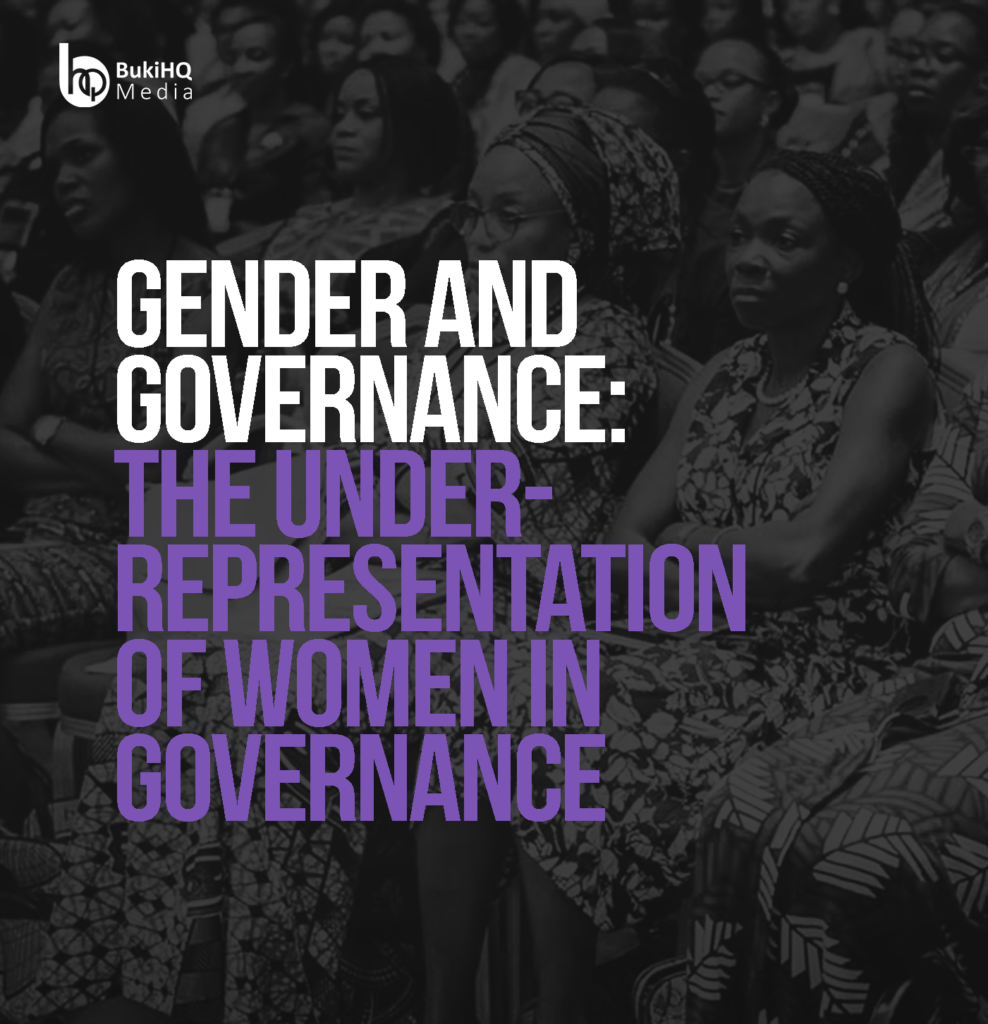
Sequel to Nigeria’s celebration of Democracy – a government of the people, by the people and for the people and with respect to our commitment towards the sustainable goal of gender equality, we discuss the underrepresentation of women in governance in this month’s newsletter.
Since the re-birth of democracy in Nigeria in 1999, women have tried to gain access to decision-making positions by contesting at various political levels, which has produced little or no substantive result due to the strong opposition from the patriarchal political system in Nigeria.
In fact, women have remained largely invisible in the Nigerian political process as traditional gender roles and deep-seated cultural norms foster a perception that women are not suited for leadership roles and should not assert themselves publicly. According to the Nigerian Bureau of Statistics, this partly accounts for why only 5.7% of elected positions in Nigeria were held by women in 2015.
The participation of women and men in formal and informal decision-making structures varies greatly between countries but is generally in favour of men. In 2013, women accounted for 8% of all national leaders and 2% of all presidential posts; however, as of October 2019, the global participation rate of women in national-level parliaments was 24.5%. Although women’s participation in governance has increased over time, the margin between the participation of both sexes remains largely uneven.
Moreover, institutional as well as cultural, economic and societal factors limit women’s opportunities and abilities to participate in decision-making: Women’s low political representation is therefore often used as an indicator of gender inequality. Specifically, the ‘proportion of seats held by women in national parliament’ was chosen as one of three indicators to measure the MDG 3 progress on gender equality and women’s empowerment.
The low representation of women in political positions is despite Nigeria’s national and international relevant commitments to gender equality. Locally, the National Gender Policy in Nigeria stipulates a 35% minimum representation of women in political leadership; Internationally, Nigeria ratified the Convention on the Elimination of All Forms of Discrimination against Women (CEDAW) in 1985 and since 2003, has been a signatory to the Protocol to the African Charter on Human and Peoples’ Rights on the Rights of Women in Africa (ACHPR).
Women often have informal roles of influence, recognition and power within the community – as mothers, teachers, volunteers, entrepreneurs, as well as community leaders. Women’s informal leadership (known as ‘quiet leadership’ in the Pacific) often has a focus on community service, but we believe that these leadership skills can be harnessed and formalized to give women political and formal decision-making power locally and globally. #BukiHQMediaForHer
Written by Chisom Ezeneche

